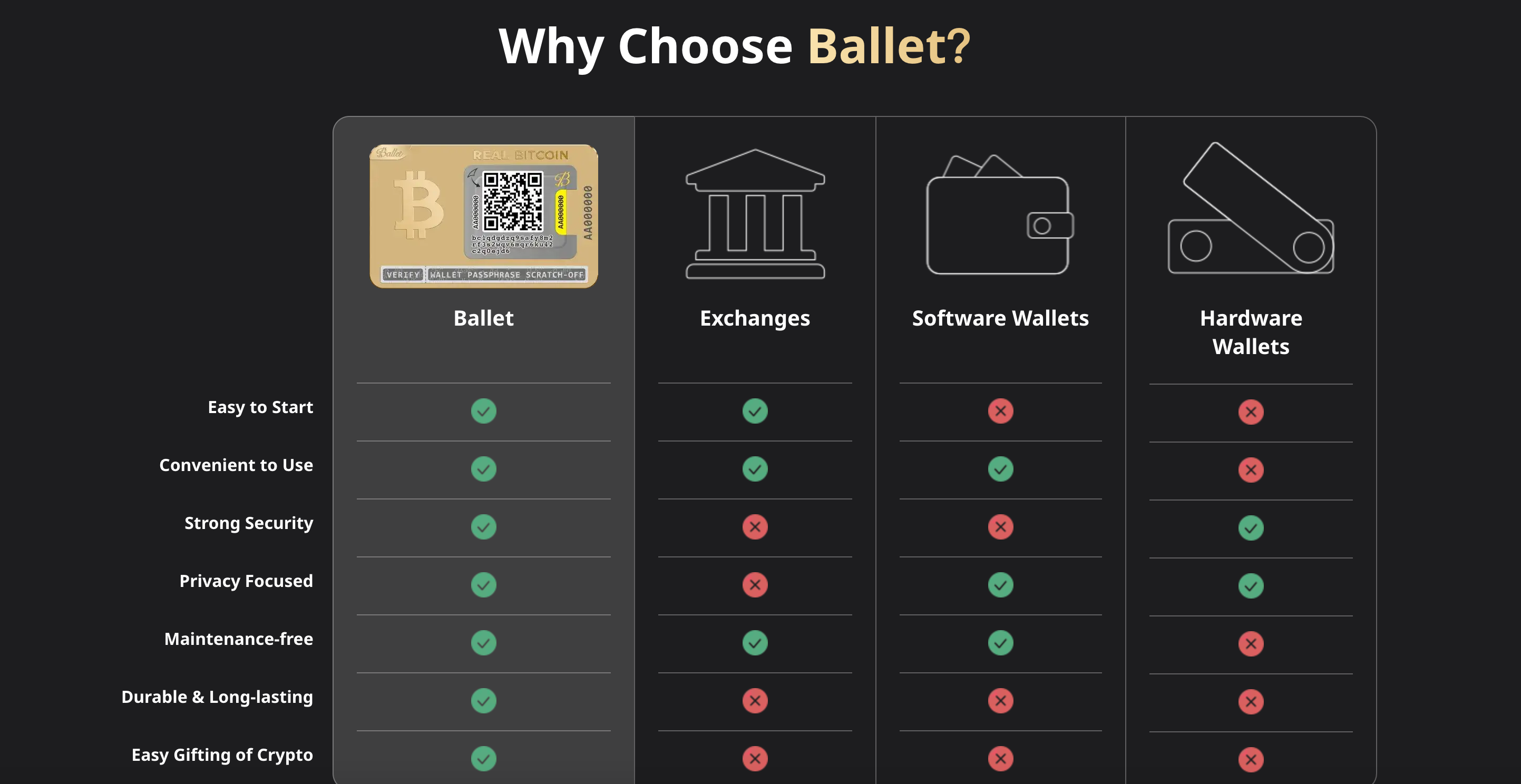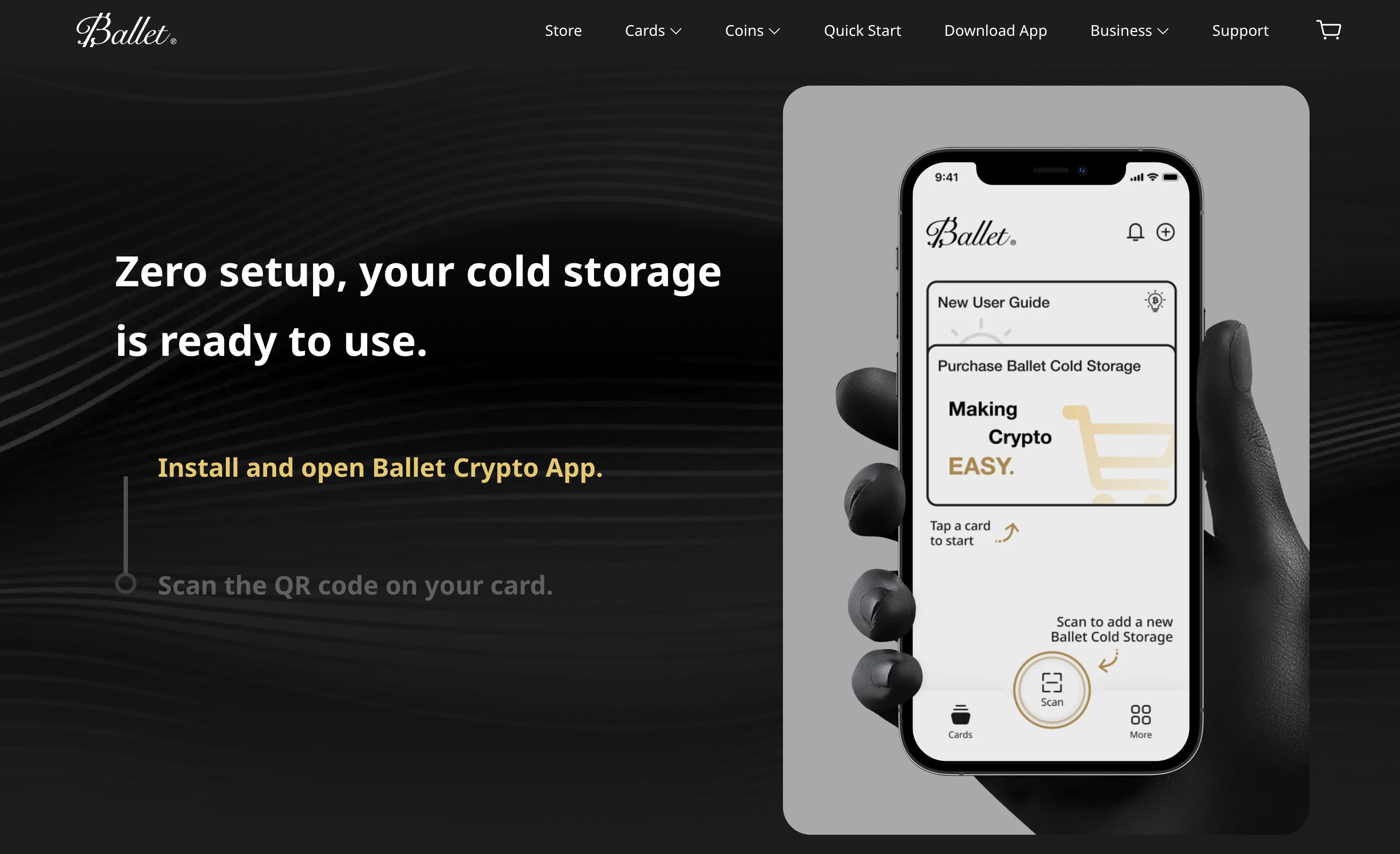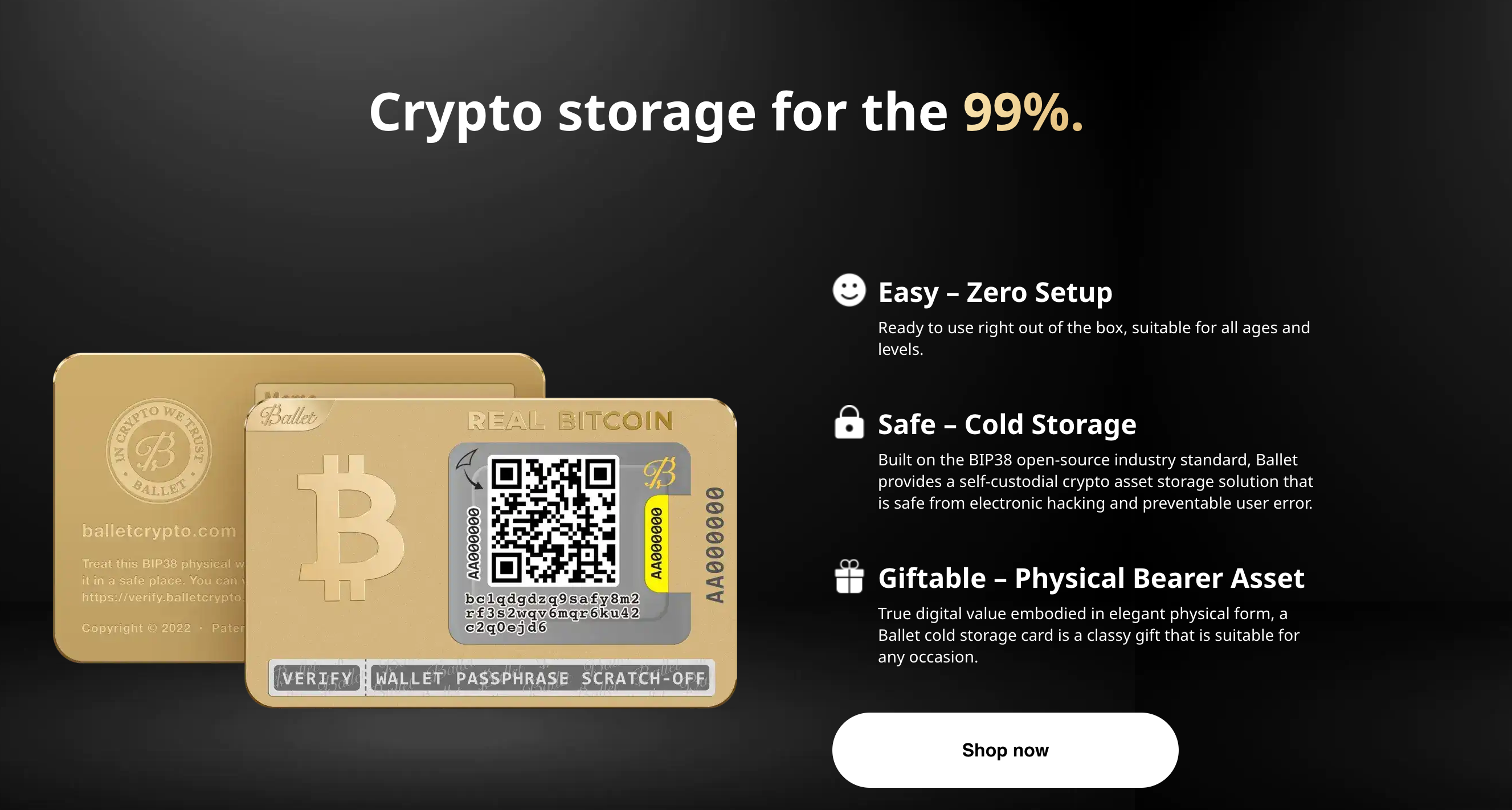










ballet wallet
a unique and innovative cryptocurrency storage solution that combines simplicity and security.
Tags:hardware walletballet wallet reviews & alternatives 2025,feature,pros and cons,price
brief introduction
Ballet Wallet is a unique and innovative cryptocurrency storage solution that combines simplicity and security. Unlike traditional hardware wallets, Ballet wallets are physical, non-electronic devices designed for ease of use, making them ideal for beginners or those looking for a simple way to store crypto.
ballet wallet official site: https://www.ballet.com/


Key Features:
- Non-Electronic Design:
- Ballet wallets are completely offline, eliminating the risk of hacking, malware, or phishing attacks.
- Pre-Configured or Self-Custody:
- Real Series: Comes pre-loaded with cryptocurrency (e.g., Bitcoin) and includes a pre-printed private key.
- Pro Series: Allows users to generate their own private key for self-custody.
- Durable and Portable:
- Made from stainless steel or titanium, Ballet wallets are resistant to physical damage, fire, and water.
- Two-Factor Key Generation:
- Uses a 2-factor key generation system where the private key is split into two parts (one visible, one hidden under a tamper-proof sticker), enhancing security.
- No Batteries or Software:
- Ballet wallets require no charging, software installation, or updates, making them extremely user-friendly.
- Wide Cryptocurrency Support:
- Supports Bitcoin (BTC), Ethereum (ETH), Litecoin (LTC), and other major cryptocurrencies.
- QR Code for Easy Transactions:
- Includes a QR code for easy access to the public address, allowing users to receive funds without exposing the private key.
Pros:
- Ease of Use: Perfect for beginners or those who prefer a simple, no-tech solution.
- High Security: Offline storage and tamper-proof design protect against digital and physical threats.
- Durable: Resistant to fire, water, and physical damage.
- No Maintenance: No software, batteries, or updates required.
- Affordable: Generally more cost-effective than traditional hardware wallets.

Cons:
- Limited Functionality: No support for advanced features like staking, DeFi, or multi-signature wallets.
- Pre-Configured Risk: For Real Series wallets, the private key is pre-printed, which may raise trust concerns for some users.
- Physical Vulnerability: While durable, the wallet can still be lost, stolen, or damaged if not stored properly.
- No Recovery Option: If the wallet is lost or the private key is compromised, there is no way to recover funds.
Price:
- Real Series: Starts at around $20–$50 USD, depending on the cryptocurrency and design.
- Pro Series: Starts at around $30–$100 USD, depending on the material (stainless steel or titanium).
Alternatives to Ballet Wallet:
- Ledger Nano S/X:
- Pros: Supports a wide range of cryptocurrencies, advanced features like staking and DeFi.
- Cons: Requires software and updates, higher cost.
- Price: $59–$149 USD.
- Trezor One/Model T:
- Pros: Open-source, user-friendly, supports multiple cryptocurrencies.
- Cons: Requires software and updates, higher cost.
- Price: $59–$219 USD.

- Coldcard Mk4:
- Pros: Focused on Bitcoin, highly secure, air-gapped operation.
- Cons: Limited to Bitcoin and a few other cryptocurrencies.
- Price: ~$148 USD.
- Paper Wallets:
- Pros: Completely offline, low cost.
- Cons: Vulnerable to physical damage, less user-friendly.
- Price: Free (if self-created).
- SafePal S1:
- Pros: Affordable, air-gapped, supports multiple cryptocurrencies.
- Cons: Requires a mobile app for full functionality.
- Price: ~$49 USD.
Conclusion:
Ballet Wallet is an excellent choice for users seeking a simple, secure, and affordable way to store cryptocurrencies offline. Its non-electronic design and durability make it ideal for beginners or those looking for a “set-and-forget” solution. However, for users needing advanced features like staking or DeFi integration, alternatives like Ledger or Trezor may be more suitable. Always consider your specific needs and security preferences when choosing a wallet.






